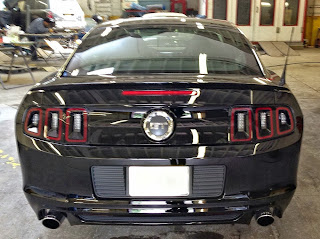Remember, a higher deductible means you will pay more out of pocket in the event of an accident. If you got into a car accident tomorrow, would you be able to pay $1,000? Your insurance company won't pay until you meet the deductible and repair shops will charge storage fees if they're waiting on you to save up to pay your deductible. Let's say you have $800 worth of damage but you have $1,000 deductible. What good is saving a few dollars a month when you have to come out-of-pocket to pay because, although the damage is substantial, the damage hasn't met your deductible amount. You must consider this very real scenario when assessing your auto insurance coverage because this happens all too often.
Saving money by raising a deductible assumes that you have the cash on hand to cover the deductible in the event an accident occurs. If you raise your auto deductible from $200 to $1,000, you’ll see a big drop in your bill, but if something goes wrong with your car, you’re going to need that $1,000. If you don’t have that $1,000 in an easy-to-access place, then you’re in real trouble.
The solution is simple: if you have a well-funded emergency fund in a savings account somewhere, you can raise your deductibles some without worry. A well-funded emergency fund means a minimum of a couple months’ worth of living expenses, plus more if you have dependents. If you have that kind of cash that can be accessed with ease, then by all means, raise your deductibles. Problem is, most of us simply don't do this.
Won’t lowering my deductible cost me more money? Many people who consider lowering their deductible ask themselves whether such a move will cost them more in the long run. After all, if they’re having to come up with more money each bill, are they really saving money overall? This difference in decreasing your deductible from $1,000 to $250 is minimal over a 12 month period.
The following example illustrates an increase of just $22.33 per month. Obviously amounts vary from state to state and driver to driver, but it's still a good gauge that lowering deductible amounts really won't break the bank. Not to mention, not having to come up with so much money upfront, at the worst possible time (especially when most of us can least afford it) can make all the difference. (from GetRichSlowly.com)
Quotes for different deductible amounts for a 35-year-old male in Houston with a clean record who drives a 2008 Honda Accord worth about $14,000. The annual premiums with different deductibles were:
- $1,230 with $250 deductible ($714 for liability, $120 for comprehensive, $396 for collision)
- $1,152 with $500 deductible ($714 for liability, $102 for comprehensive, $336 for collision)
- $1,062 with $1,000 deductible ($714 for liability, $84 for comprehensive, $264 for collision)
- $962 with $2,500 deductible ($714 for liability, $62 for comprehensive, $186 for collision)
Good Luck And Safe Driving!






.JPG)





































